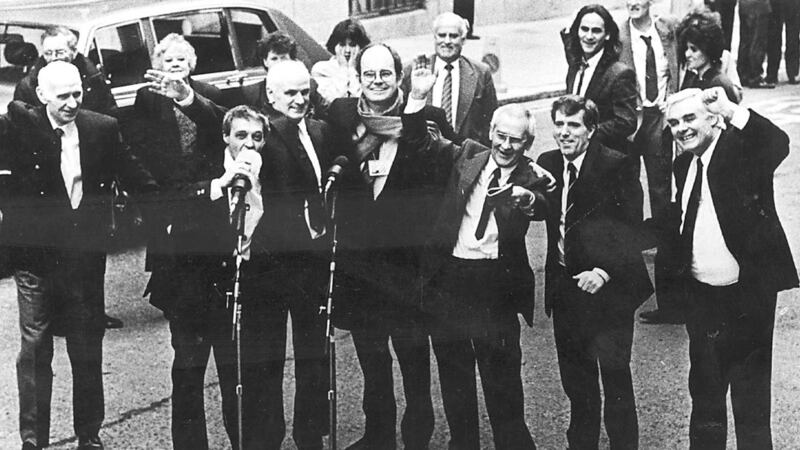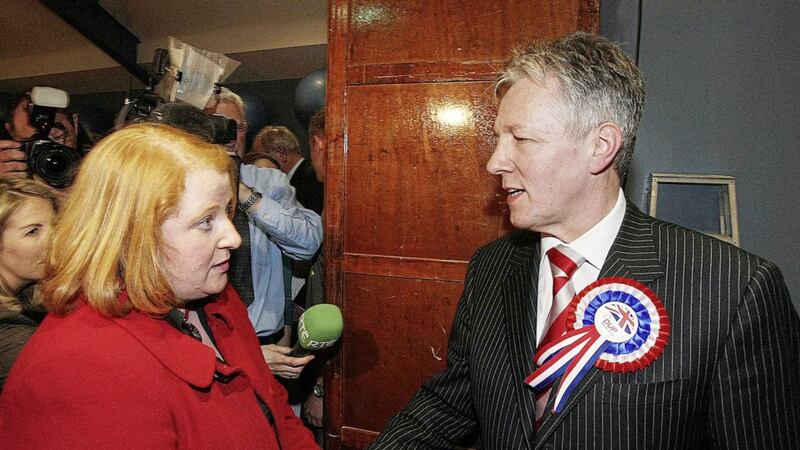THEY say history never repeats itself, but historians often do. Much the same can be said for journalists. We love a big story.
Breaking news is still the stuff of newspapers, it sets pulses racing and fingers dancing across keyboards.
But not every day is a big news day, and needs must. In the absence of anything else we fall back on old news, repackaged.
The anniversary is a brilliant excuse to fill the airwaves and to decorate acres of newsprint.
It will hardly have escaped your notice that, had he lived, Frank Sinatra would have been 100 this month – inconveniently he died in 1998, but the marketeers never let that get in in the way of a retrospective.
The 80th anniversary of Elvis’s birth was marked with a ‘new’ release where he was backed by the Royal Philharmonic Orchestra karaoke style.
This past year we were invited to remember the battle of Waterloo, VE Day and the anniversary of Churchill’s death.
Those of a literary disposition will know that the Irish ambassador to the Court of St James has tweeted a quote from Yeats every day this year to mark the 150th anniversary of the poet’s birth, and why not.
This coming year there are a couple of significant ones: the 20th anniversary of the Docklands bombing at Canary Wharf and the 25th of the release of the Birmingham Six among them.
But the year will be overshadowed by two events that had a profound effect on history. In a strange way they are intertwined.
The Easter Rising exploited that familiar Irish republican political observation: England’s difficulty is Ireland’s opportunity.
With all its resources focused on the battle against Germany in France, England was certainly in difficulty in 1916.
The justness of the First World War is less clear-cut than the second, but the Kaiser was not a particularly pleasant man, nor was he a champion of the principles of the civil liberties we now expect of an enlightened modern leader.
Right might well have been on England’s side, but we must remember history is suspect, it is written by the victors. (Irish history is the exception to that rule, ours is a victims’ narrative.)
For the mass of Irish people, while there may have been a general desire for independence, there was no imperative to strike a blow for freedom in 1916.
The leaders of the Rising had no mandate (they earned it retrospectively).
Needless to say, there is competition for the position of ‘rightful heir’ to the legacy of 1916, and there is a risk that the commemorations of the rising will reopen some of the wounds in Irish society that appeared in its aftermath.
The greater risk is that they will exacerbate the rift in political cultures in the north of the island – a rift which shows little sign of healing it is sad to say. And here we come to the second great anniversary of the year.
Countless Irishmen lost their lives on the bloodied fields on the banks of the Somme in 1916. Their blood sacrifice is as entrenched in loyalist history and mythology, as that of the 1916 leaders in nationalism’s.
The loss of so many in the Ulster brigades has fuelled the sense of betrayal at the actions in the GPO and done much to sustain the bitterness that underscores so much of our politics.
Yet many nationalists lost their lives in the same battle – Redmondites trusting their willingness to fight for the crown would secure home rule.
Is it too much to ask that this year be seen as an opportunity to reflect on past events rather than glory in them; to recognise that events are usually more complex than we remember them; and to come to a realisation that history belongs in the past and not in the present?
***
In finishing, I would like to add my own tribute to the journalist Liam Clarke who died this week.
I met Liam when I was a rookie working at the News Letter and the Sunday News in the 1980s.
To me then he seemed like a seasoned hack but he cannot have been much older than me. He was intelligent and never afraid to challenge orthodoxies.
In a political system where there is no real opposition, journalists like him are a critical part of the body politic and he will be missed.









